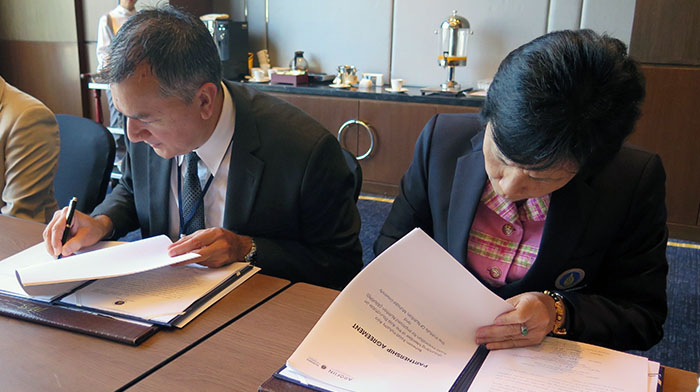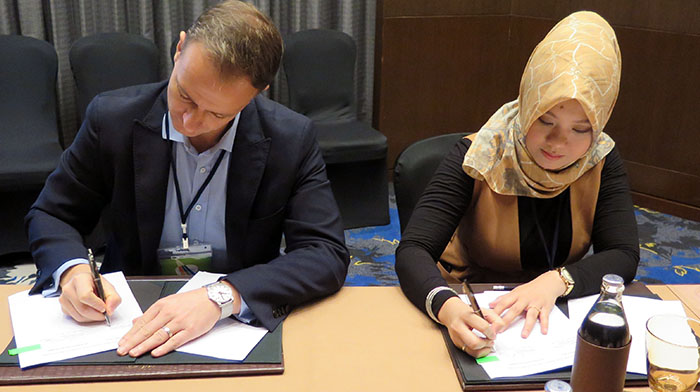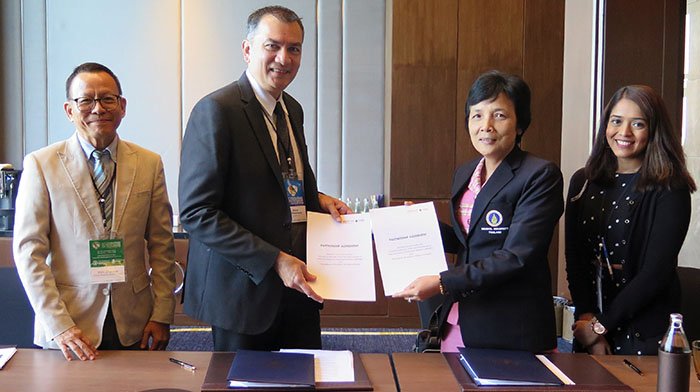
News & Events
Enabling a Healthy Community in Asia with Localised Approaches
As we know, Asia is facing a growing burden of malnutrition, increasing obesity rates, staggering prevalence of undernutrition, and micronutrient deficiencies in both rural and urban communities, despite significant economic growth in the region. While these lifestyle diseases are influenced by a variety of factors, a multi-faceted approach is needed to change health behaviours of the population as there is no silver bullet in reducing the rates of obesity and undernutrition.
As policy pressures to drive health and wellness in this part of the region increase, efforts to curb the health challenges should not just be driven by governments and inter-governmental organizations like the World Health Organization, but also the industry, through self-regulatory measures, product reformulation and innovation, as well as scientists and academics operating in the region. Multi-stakeholder partnerships that share knowledge, expertise, technology and financial resources, are imperative to develop solutions to improve the health and well-being of a population; enabling a positive change in consumer behaviour by scaling intervention programmes and expanding community outreach.
As a catalyst for multi-stakeholder action, ARoFIIN, which introduced two country-level initiatives earlier this year has formalised its partnerships with the United Nations World Food Programme in Indonesia and Mahidol University in Thailand to raise nutrition awareness, particularly in children to equip them with the knowledge and skills to lead healthy lifestyles, by creating an environment where healthy choices are the easy choices.
ARoFIIN-INMU sign partnership agreement to promote nutrition education through the “Nutri-Teacher” Programme
Food Industry Asia (FIA), one of three founding members of the Asia Roundtable on Food Innovation for Improved Nutrition (ARoFIIN) and the Institute of Nutrition, Mahidol University (INMU) signed a partnership agreement last week to formalise its collaborative efforts to enhance nutrition communications in schools by nurturing students as the “leaders of tomorrow.”
The Partnership Agreement was signed by Mr Steven Bartholomeusz, Policy Director, FIA and Dr Ratchanee Kongkachulchal, Associate Professor and Director of Institute of Nutrition, INMU at the side lines of the IFPRI-FAO global conference on Accelerating the End of Hunger and Malnutrition.

Mr Steven Bartholomeusz, Policy Director, FIA and Dr Ratchanee Kongkachulchal, Associate Professor and Director of Institute of Nutrition, INMU signing the partnership agreements
ARoFIIN-WFP sign partnership agreement to increase consumption of fruits and vegetables in schools
FIA on behalf of ARoFIIN also formalised the collaboration with the Indonesian country office of United Nations World Food Programme (WFP) to increase the consumption of fruits and vegetables in Indonesian school children.
With a growing evidence base showing that Indonesians are increasingly malnourished as a result of stunting, wasting and obesity, the Indonesian government launched a Healthy Indonesia Movement (GERMAS), a campaign managed by the Ministry of Health to promote a preventative approach to health. One of the key areas that the campaign focuses on includes the improvement of nutrition conditions in schools through the provision of school meals. In 2018, the ministry had announced a massive scaling up of the national school meals programme which comprises of three components (i) meals provision; (ii) nutrition education and (iii) behaviour change. To support the scaling-up of the programme, ARoFIIN together with the Ministry of Health and WFP will promote the consumption of fruits and vegetables through the provision of nutritious meals and with nutrition education classes that teaches the younger generation to make informed food choices, driving the importance of adopting a balanced and nutritious diet.

Mr Matt Kovac, Executive Director, FIA and Ms Diandra Pratami, Government Partnerships Officer, WFP signing the partnership agreements on increasing access to nutritious foods in Indonesia
Nutrition education is critical to improving diets, these partnerships highlight the importance of working with partners across sectors to inform consumers about nutrition and healthy lifestyles, in order to address health concerns related to obesity, non-communicable diseases and undernutrition.
The “Nutri-Teacher” pilot in Thailand will focus on strengthening nutrition education, nurturing school children to become the agents of change, for a healthy community by educating and enabling them to promote healthy eating and lifestyle behaviours to their peers and families which will then translate to community action. As the students become more knowledgeable, self-assessment and self-monitoring can be carried out with families and communities.
The programme will comprise of a workshop for teachers to familiarise themselves with key nutrition concepts and how to perform the healthy eating and healthy behaviours questionnaire (HEHBQ), prior to introducing them to Grade 4-6 children during health education classes in schools. The teachers will then train their students to be family health assessors and nutrition messengers. With the nutrition training kit and the HEHBQ checklist, a “nutri-teacher” in each school will be created and mobilized to assess and promote good nutrition and health behaviours among their peers and communities.
The data obtained through the self-evaluation together with the anthropometric measurements will be used to assess and monitor the health behaviours of an individual, family, school community, workplace environment and beyond, which by extension can inform policy development in the local districts.

From left: Dr Visith Chavasit, INMU; Mr Steven Bartholomeusz, FIA, Dr Ratchanee Kongkachulchal, INMU and Sabeera Ali, FIA

